
A yellow Cape cobra.
By Stephen Beech
A revolutionary new antivenom has proven effective against snakebites from 17 of the world's deadliest serpents.
Scientists used antibodies from alpacas and llamas to create the antidote that protects against venomous African snakes, including the spitting cobra and black mamba.
Experts say the breakthrough has the potential to become a mass-produced product.
Snakebites lead to between 100,000 and 150,000 human deaths globally each year, according to the World Health Organization. (WHO).
Three times as many survive but with serious disabilities, including amputations and permanent tissue damage.
Existing antivenoms have major limitations, including that they don't cover all medically relevant snake species and that they cannot always neutralize all medically relevant toxins found in snake venoms.
Now, an international research team has developed the potentially groundbreaking antivenom, which they say could revolutionize snakebite treatment.

(Photo by josiah farrow via Pexels)
The "impressive" lab results, published in the journal Nature, show that it provides better protection against tissue damage and has a lower risk of immune reactions.
The researchers say it can also be produced at a lower cost than existing antivenoms.
Study leader Professor Andreas Hougaard Laustsen-Kiel, from the Technical University of Denmark (DTU), said: “We have both a moral and global responsibility to contribute to solving this problem.
"It's great that DTU supports this kind of research and gives us the opportunity to work on some of the challenges facing the world - especially in Africa, where the problem is really acute.”
Existing antivenoms are produced by immunising horses with snake venom and extracting antibodies from their blood.
The result is a large, undefined mixture of antibodies, only a small proportion of which target and neutralise the most dangerous toxins.
The method produces a product with great variation in quality and a risk of serious side effects.
Laustsen-Kiel said: “The horses' blood is purified slightly and then given to people who have been bitten by a venomous snake.
"The antivenom works, but can cause harmful side effects – it's similar to a blood transfusion from a horse.
"At the same time, the quality varies because different horses are used in each production.
"Instead, we have developed an antivenom that does not require us to constantly extract antibodies from animals.

An African spitting cobra.
"Instead, we used phage display technology to develop our antivenom.
"This method makes it possible to select and copy effective antibody fragments - or nanobodies - and later produce them on a large scale and with consistent quality.
"This means that we would be able to produce the antivenom in large quantities without compromising on quality."
The research team developed a more effective antivenom by combining eight carefully selected nanobodies into a "cocktail" that targets venom from 18 medically relevant African snake species.
They explained that nanobodies are a special type of antibody that originates from antibodies found in animals in the camel family.
They are both smaller and more stable than ordinary antibodies.
The research team developed the nanobodies to bind strongly and precisely to many different similar toxins, which enables the antivenom to neutralize venom from multiple species.
In experiments where the antivenom was mixed directly with the venom before being injected, it successfully neutralized venom from 17 out of 18 tested different snake species, with the exception of one of the green mambas.
The new antivenom also showed "promising" results against local tissue damage.
Nanobodies also carry a much lower risk of serious immune reactions compared to current antivenoms.
Although the antivenom has shown promising results, the researchers said it has not yet been tested on humans, and there is still "some way" to go before it reaches the market.
They said the venom from certain species -including the black mamba and forest cobra - was only partially neutralized.
They say that shows that both the composition of the venom and the timing of treatment are very important, and that the antivenom does not yet provide full protection in all cases.
The research team is still working on fine-tuning and improving the content of the antivenom so that the final version can provide even better protection for snakebite victims and increase the chance of saving lives.

A black mamba.
Laustsen-Kiel said: “We have already upgraded one of the nanobodies included and are in the process of improving another.
"We are constantly learning new things along the way, and it may turn out that some minor adjustments will need to be made in the future.
“We estimate that the antivenom can be produced at less than half the current price.
"This is partly because less active substance is needed to achieve the same effect.
"At the same time, nanobodies have very high physical stability, which could lower storage costs.”
Clinical trials could begin in one to two years, according to the researchers, and a finished product could potentially be ready within three to four years, with the potential to save thousands of lives.
Laustsen-Kiel has been in talks with companies, organizations and partners to find a way forward.
He added: “Of course, I have to be careful not to promise too much, but if no other antivenoms emerge that are better, I am quite convinced that our antivenom – compared to those currently on the market – has the broadest coverage of snake species.
“We are ready to get started and hope that someone will invest in the project.
"Our antivenom has the potential to fundamentally change how snakebites are treated around the world.”
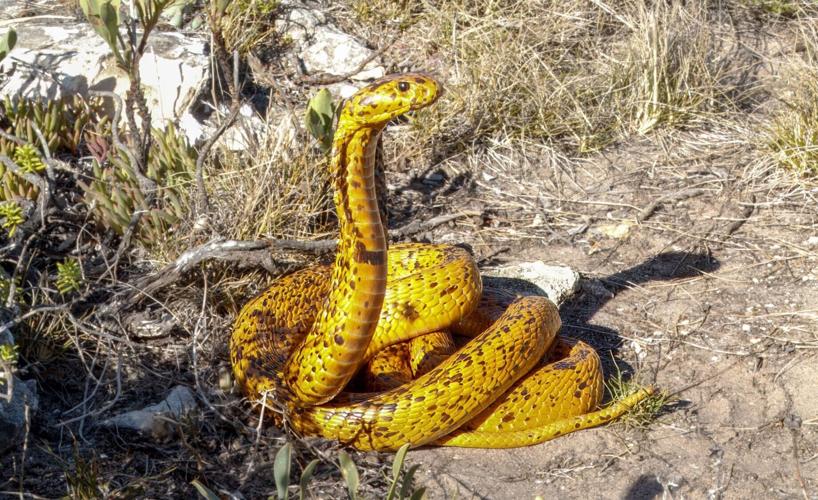
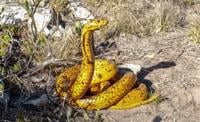
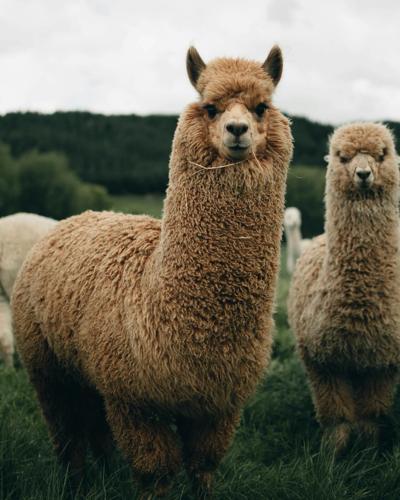

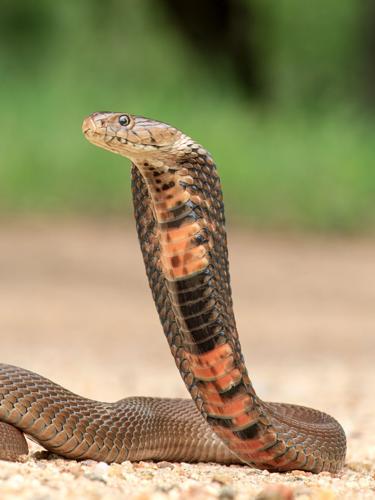
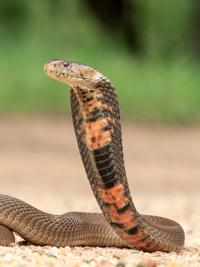
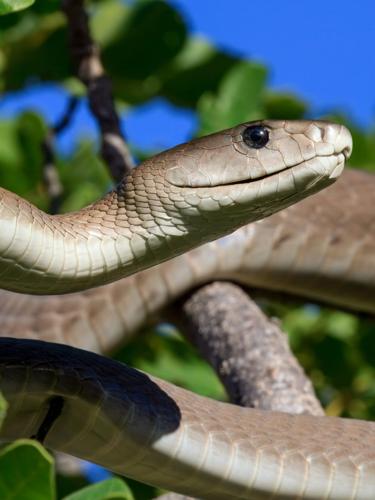














(0) comments
Welcome to the discussion.
Log In
Keep it Clean. Please avoid obscene, vulgar, lewd, racist or sexually-oriented language.
PLEASE TURN OFF YOUR CAPS LOCK.
Don't Threaten. Threats of harming another person will not be tolerated.
Be Truthful. Don't knowingly lie about anyone or anything.
Be Nice. No racism, sexism or any sort of -ism that is degrading to another person.
Be Proactive. Use the 'Report' link on each comment to let us know of abusive posts.
Share with Us. We'd love to hear eyewitness accounts, the history behind an article.